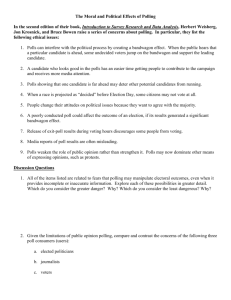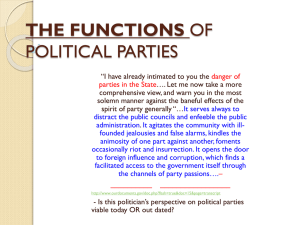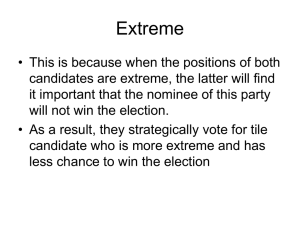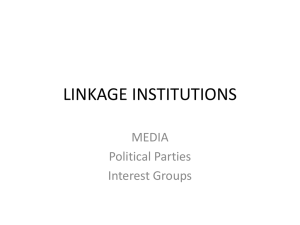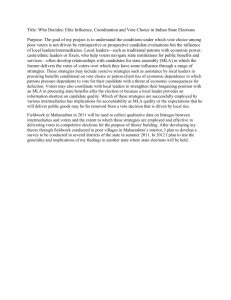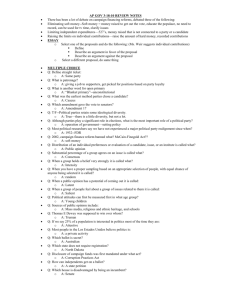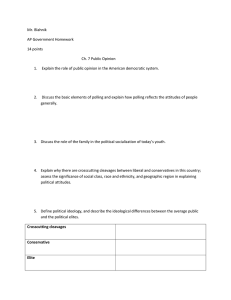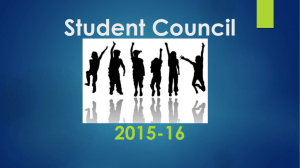Wrap-Up Sheet Answers
advertisement
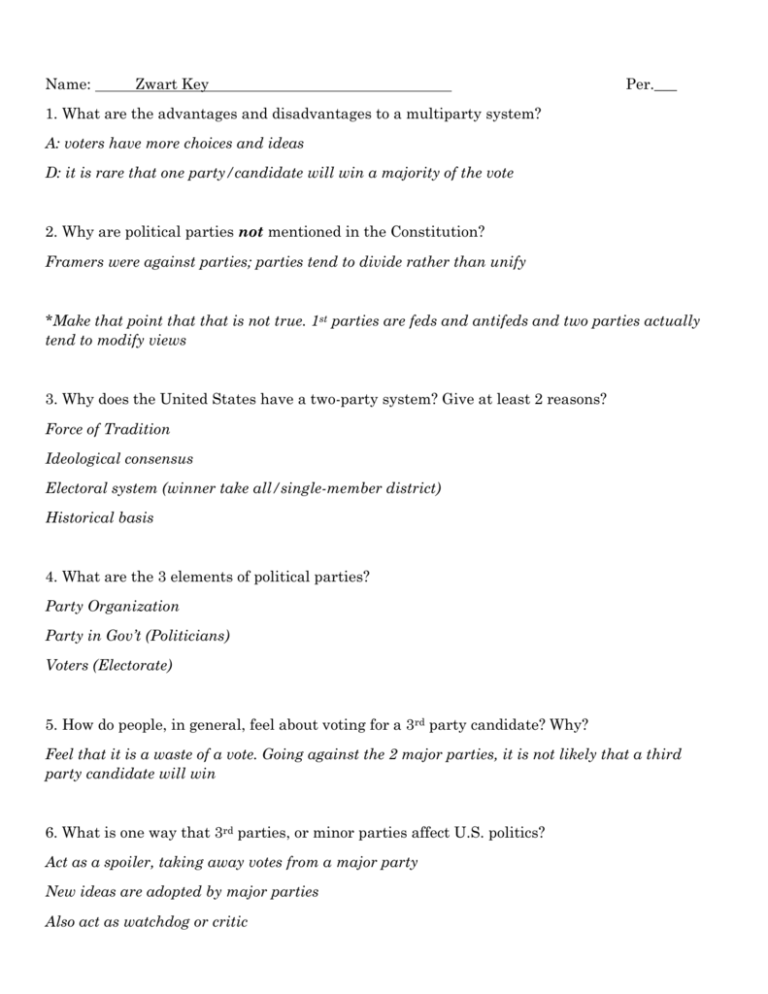
Name: Zwart Key Per.___ 1. What are the advantages and disadvantages to a multiparty system? A: voters have more choices and ideas D: it is rare that one party/candidate will win a majority of the vote 2. Why are political parties not mentioned in the Constitution? Framers were against parties; parties tend to divide rather than unify *Make that point that that is not true. 1st parties are feds and antifeds and two parties actually tend to modify views 3. Why does the United States have a two-party system? Give at least 2 reasons? Force of Tradition Ideological consensus Electoral system (winner take all/single-member district) Historical basis 4. What are the 3 elements of political parties? Party Organization Party in Gov’t (Politicians) Voters (Electorate) 5. How do people, in general, feel about voting for a 3rd party candidate? Why? Feel that it is a waste of a vote. Going against the 2 major parties, it is not likely that a third party candidate will win 6. What is one way that 3rd parties, or minor parties affect U.S. politics? Act as a spoiler, taking away votes from a major party New ideas are adopted by major parties Also act as watchdog or critic 7. What are the 4 types of third parties? Give at least one specific example. Ideological Parties: Libertarian Splinter: Bull-Moose Single-Issue: Green (evolved after founding), Free-Soil Party Economic Protest: Greenback Party/ Populist Party 8. What is the difference between political parties and interest groups? Political parties nominate a candidate and interest parties do not. Interest groups more interested in the what rather than the whom. General interests are different 9. How do we see polarization in America? In the different communities across America. You can choose where you live and often tend to live amongst like-minded people. Leads to the creation of more extreme views. 10. What are lobbyists? The people who work and advocate for interest groups and get public officials to act in the interest of those groups 11. What is one main criticism of interest groups? Push a narrow agenda/ can exclude other viewpoints on issues/ too much influence/ poor and unethical tactics 12. Name one interest group: NRA, NAACP, NOW, GreenPeace 13. What is the largest type of interest group? Business (Economic) 14. Describe one direct and one indirect approach to lobbying. D: Target individual members of Congress I: Start working from grassroot levels; PAC 15. What is our best measure of public opinion? Public Opinion Polls 16. List 3 factors that affect public opinion. Family, Education, Occupation, Race, Mass Media, Peer Groups, Opinion Leader, Historic Events 17. What is the difference between a straw vote and scientific polling? Straw voting is informal and often inaccurate due to its random nature. Participants are selfselected. Scientific polling follows the 5 necessary steps and is much more methodical. Provides a sampling of random people that are not self-selected. Probability comes into account with their sampling size (~1500). Quotas can be used (not random), but not as reliable bc people can fit into multiple categories 18. How do polls affect public opinion? Many different ways. They can turn public opinion for or against something due to the bandwagon effect. Often they reflect public opinion, but sometimes they mold it as well. Video Clip Questions 1. Frank Luntz claims that _____% is emotion and _____% is intellect 2. What is the power of language? 3. What was the estate tax renamed as? ________________________________________ 4. What is narrow casting?
